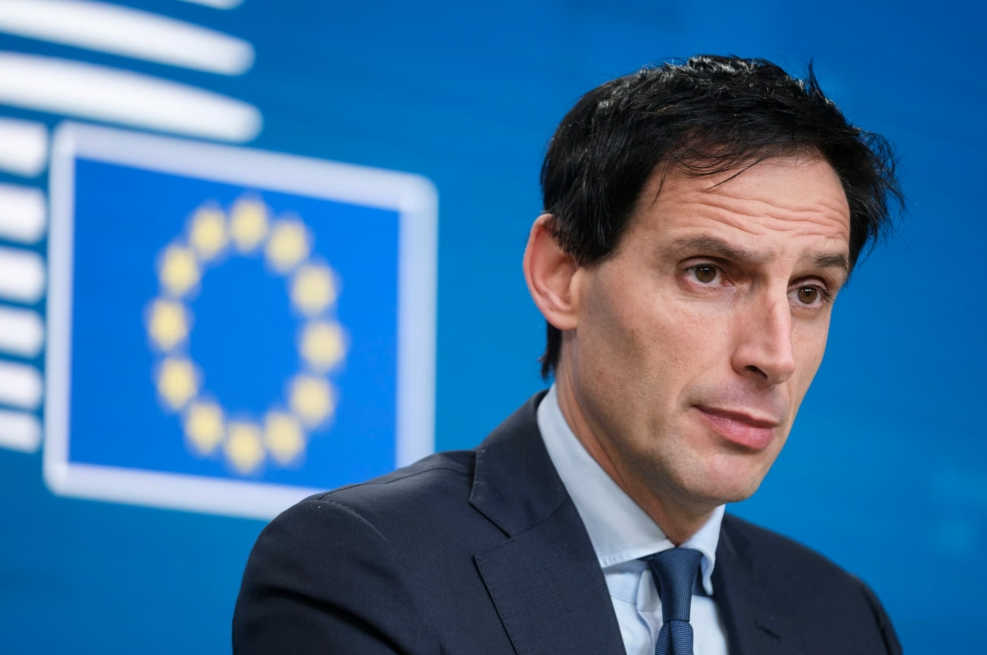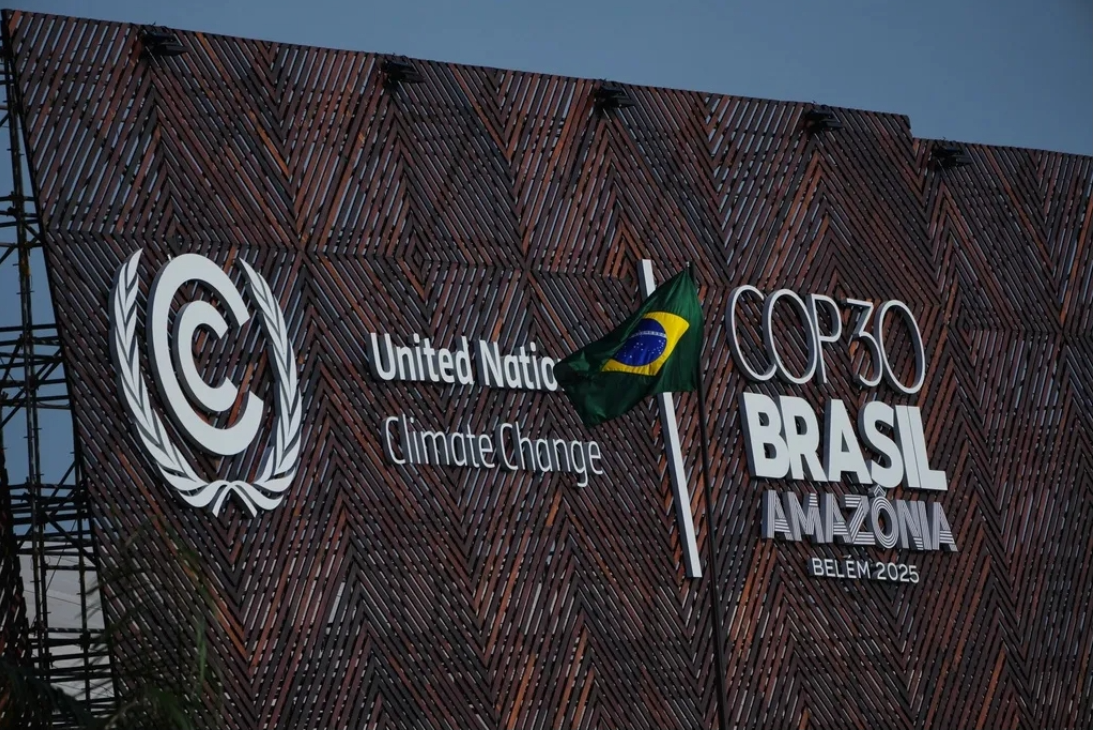The European Union is struggling to defend its Carbon Border Adjustment Mechanism (CBAM) as trade tensions dominate the atmosphere of the COP30 climate talks in Belém. The carbon tariff, set to take effect on January 1 alongside a series of EU green regulations, including rules on deforestation-linked goods, methane standards, and duties on Chinese electric vehicles, has triggered strong pushback from major exporting countries.
Delegations from India, China, Saudi Arabia, and several developing nations argue that CBAM amounts to disguised protectionism and places an unfair burden on emerging economies. China’s representatives warn that unilateral measures risk undermining global cooperation and increasing the cost of the energy transition. Although the EU is not named directly, observers note that the criticism at COP30 is clearly aimed at CBAM.

EU climate chief Wopke Hoekstra Source: Getty Images
Brazil, as the host of COP30, has proposed a mechanism to periodically review such measures within the UN climate system. The EU immediately objected, insisting that climate conferences are not the appropriate forum for handling trade disputes. European officials, including lead negotiator Wopke Hoekstra, maintain that CBAM is not designed to restrict trade but to prevent carbon leakage, given that European companies currently face a carbon price of around €80 per ton. They argue that the mechanism is a climate tool and should be discussed separately from geopolitical debates.
The EU also views CBAM as an instrument that can encourage broader adoption of carbon pricing—part of the so-called Brussels effect, in which the bloc uses its economic weight to shape global standards. This approach has already influenced countries such as Türkiye, which cited CBAM in adopting emissions-reduction legislation, and has helped anchor climate commitments in trade agreements like Mercosur, which prevents Argentina from withdrawing from the Paris Agreement.
Nevertheless, many countries regard the EU’s strategy as heavy-handed. Bangladesh has raised concerns about the rise of unilateral trade measures, while several Latin American states argue that such disputes belong at the World Trade Organization, not in climate negotiations. European diplomats believe that India, China, and Saudi Arabia are leveraging the CBAM controversy to gain an advantage in other negotiation tracks. Even so, analysts say the EU must show flexibility and explore cooperative mechanisms with developing countries to reduce costs and avoid unnecessary confrontation.
With other jurisdictions preparing similar schemes, Britain plans to introduce its own CBAM in 2027. Brazil is attempting to facilitate a more constructive dialogue on trade and climate. Experts note that as multiple CBAM-type systems emerge, structured international coordination will become essential to avoid trade disruptions and ensure that developing economies are not disproportionately affected.

COP 30 Conference Source: Getty Images
German State Secretary Jochen Flasbarth emphasizes that the tensions surrounding CBAM can only be resolved if countries agree on common carbon-pricing standards, a conversation that Brazil has initiated at COP30.
The Minh
 Meeting to propose the implementation of the Letter of Intent for the National Green Carbon Action Partnership Program (NBCAP)
Meeting to propose the implementation of the Letter of Intent for the National Green Carbon Action Partnership Program (NBCAP)
 Online Workshop on the Financing Roadmap for Plastic Action to 2030: Mobilizing USD 8.5 Billion for Viet Nam’s Circular Economy
Online Workshop on the Financing Roadmap for Plastic Action to 2030: Mobilizing USD 8.5 Billion for Viet Nam’s Circular Economy